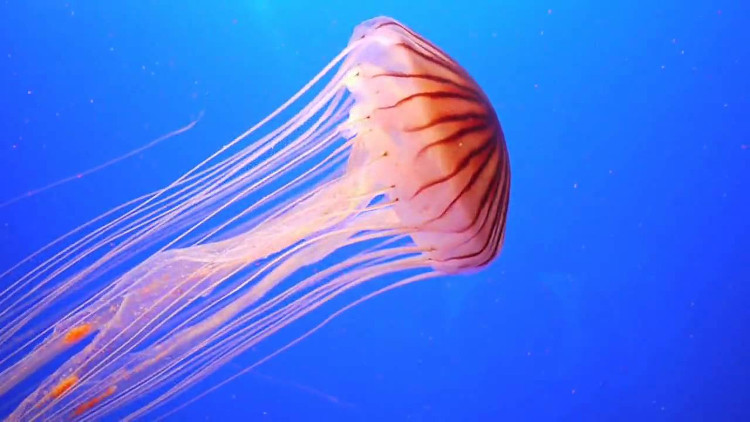The evolutionary secret helps jellyfish survive without the heart and brain
Jellyfish are always interesting research topics of scientists. Although no heart, no brain, some jellyfish can live almost immortal.
Jellyfish are a plankton. Their lifecycle lasts from a few hours, months or even years. The species of Turritopsis Nutricula is more special, it has the ability to self-regenerate and immortal.

The jellyfish body has 95% water, no bones.
Jellyfish have distant relatives with corals and anemones. The jellyfish body has 95% water, no bones. Jellyfish also do not have the brain and heart but only the nerves located at the bottom of the eye, which help to react to the environment.
Jellyfish are passive, completely dependent on reflexes. They orient and sense light through receptor cells.
Since there is no brain, jellyfish movements are limited, depending on the currents. Jellyfish also do not actively hunt food but wait for the prey to encounter them. The tentacles are covered by special cells called Cnidoblasts , used for hunting and self-defense.
Jellyfish don't have hearts, so why does it still live?
Basically, jellyfish work without the heart. The outer shell of the jellyfish called Ectoderm , oxygen simply diffuses into their body, does not require blood pumping to get oxygen from the heart. In addition, the jellyfish's digestive system is very rudimentary. Both respiration and nutrient absorption do not require complex parts like the heart.
- How does jellyfish dominate the sea when there is no brain?
- Animals do not heart, do not brain swim wonders
- 65 interesting things about jellyfish (1)
- Animals still sleep at night even without the brain
- Jellyfish species can 'knock down' American carriers
- 65 interesting things about jellyfish (2)
- Beautiful sparkling jellyfish kingdom
- Do you know how jellyfish burn us?
- Beauty of jellyfish in the dark
- Startled with the danger of jellyfish invading the oceans
- Treatment of neurological disorders by jellyfish brain
- Jellyfish cannot 'invade' the planet
 Surprised: Fish that live in the dark ocean still see colors
Surprised: Fish that live in the dark ocean still see colors Japan suddenly caught the creature that caused the earthquake in the legend
Japan suddenly caught the creature that caused the earthquake in the legend A series of gray whale carcasses washed ashore on California's coast
A series of gray whale carcasses washed ashore on California's coast Compare the size of shark species in the world
Compare the size of shark species in the world